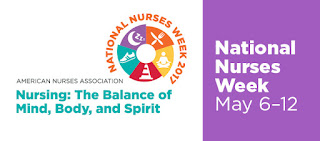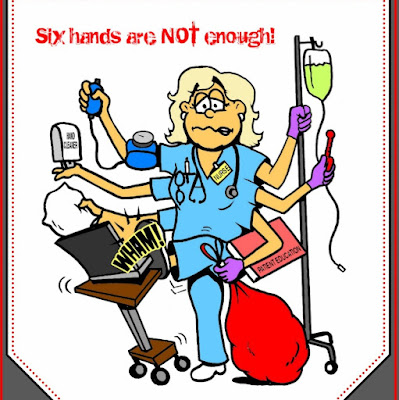Seven Emerging Technologies that Are Changing the Practice of Nursing
Seven Emerging Technologies that Are
Changing the Practice of Nursing
Technology
|
Benefits
|
Challenges
|
Genetics
and Genomics
|
The
majority of disease risk, health conditions and the therapies used to treat
those conditions have a genetic and/or genomic element influenced by
environmental, lifestyle, and other factors therefore impacting the entire
nursing profession (Calzone et. al, 2010).
|
Many
nurses currently in practice know little about genetics and genomics and lack
the competence needed to effectively counsel and teach patients in this
regard.
|
Less
Invasive and More Accurate Tools for Diagnostics and Treatment
|
Non-invasive
and minimally invasive tools for diagnostics and treatment generally result
in lower patient risk and cost.
|
The
rate at which noninvasive and minimally invasive tools are being introduced
makes ongoing competency regarding their use a challenge for nurses.
|
3-D
Printing
|
Bioprinters,
using a "bio-ink" made of living cell mixtures can build a 3D
structure of cells, layer by layer, to form human tissue and eventually human
organs for replacement (Thompson, 2012).
|
Healthcare
is just beginning to explore the limits of this technology. There are limits
to the materials which can be used for printing and materials science is a
laggard in 3D printing (Nusca, 2012).
|
Robotics
|
Robotics
can provide improved diagnostic abilities; a less invasive and more
comfortable experience for the patient; and the ability to do smaller and
more precise interventions (Newell, n.d). In addition, robots can be used
as adjunct care providers for some physical and mental health care provision.
|
More
research is needed on comparative effectiveness of robotics and human care
providers. Many healthcare providers have expressed concern about the lack of
emotion in robots, suggesting that this is the element that will never
replace human caregivers.
|
Biometrics
|
Biometrics
increase the security of confidential healthcare information and eliminate
the costs of managing lost passwords.
|
The
measurement of biometric markers may occur in less than ideal situations in
healthcare settings and in a rapidly changing workforce, cost may become an
issue.
|
Electronic
Healthcare Records (EHR)
|
Healthcare
providers have access to critical patient information from multiple
providers, literally 24 hours a day, 7 days a week, allowing for better
coordinated care.
|
Implementation
costs, getting computers to talk to each other and debates about who “owns”
the data in the EHR continue to challenge its required implementation.
|
Computerized
Physician/Provider Order; Entry (CPOE) and Clinical Decision Support
|
CPOE
and clinical decision support fundamentally change the ordering process
resulting in lower costs, reduced medical errors, and more interventions
based on evidence and best practices.
|
The
introduction of CPOE and clinical decision support requires providers to
alter their practice. Resistance is common due to the time spent on order
entry. Implementation and training costs are often significant.
|







No comments:
Comments for this blog are held for moderation before they are published to the blog.
Note: Only a member of this blog may post a comment.